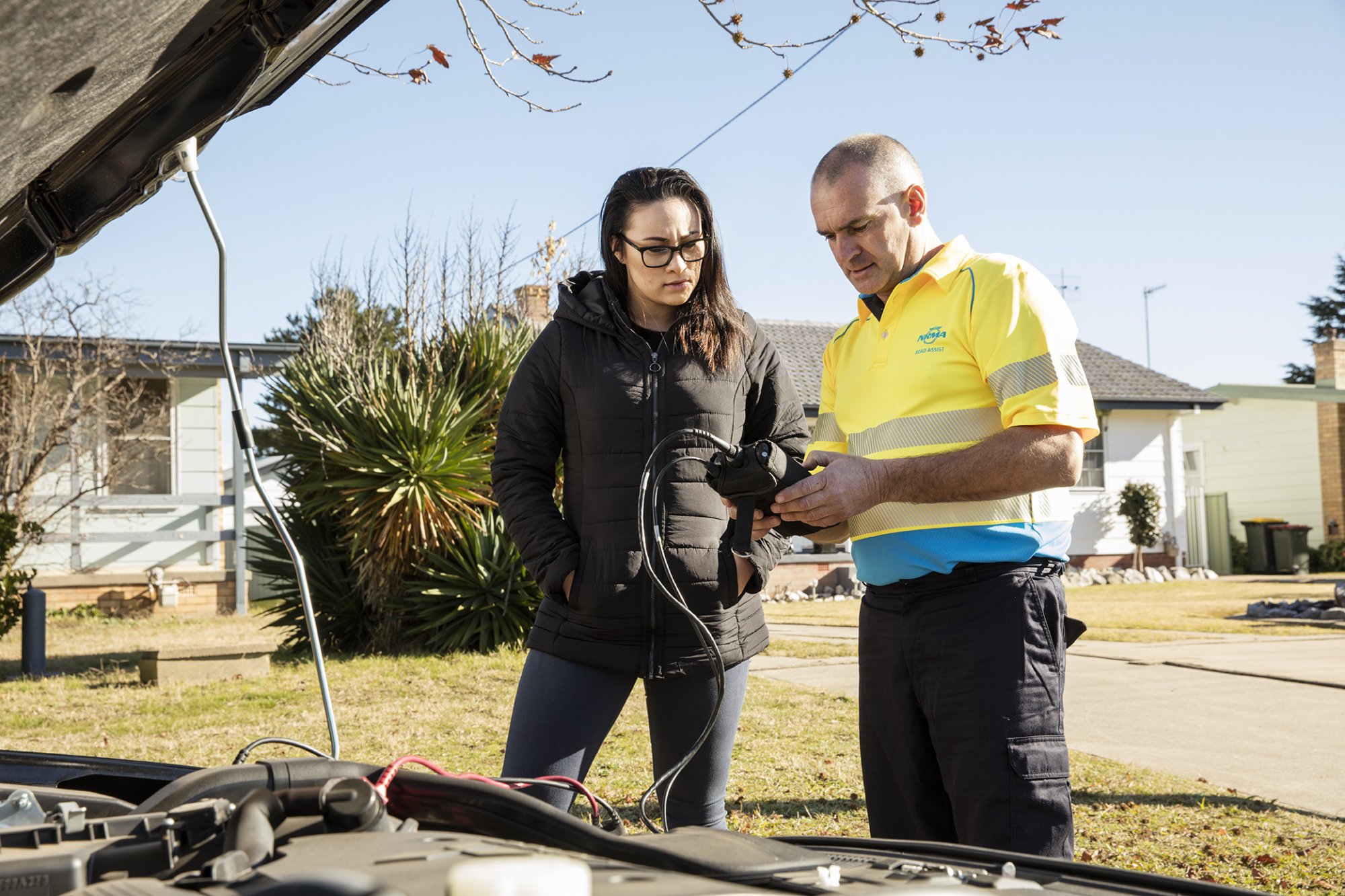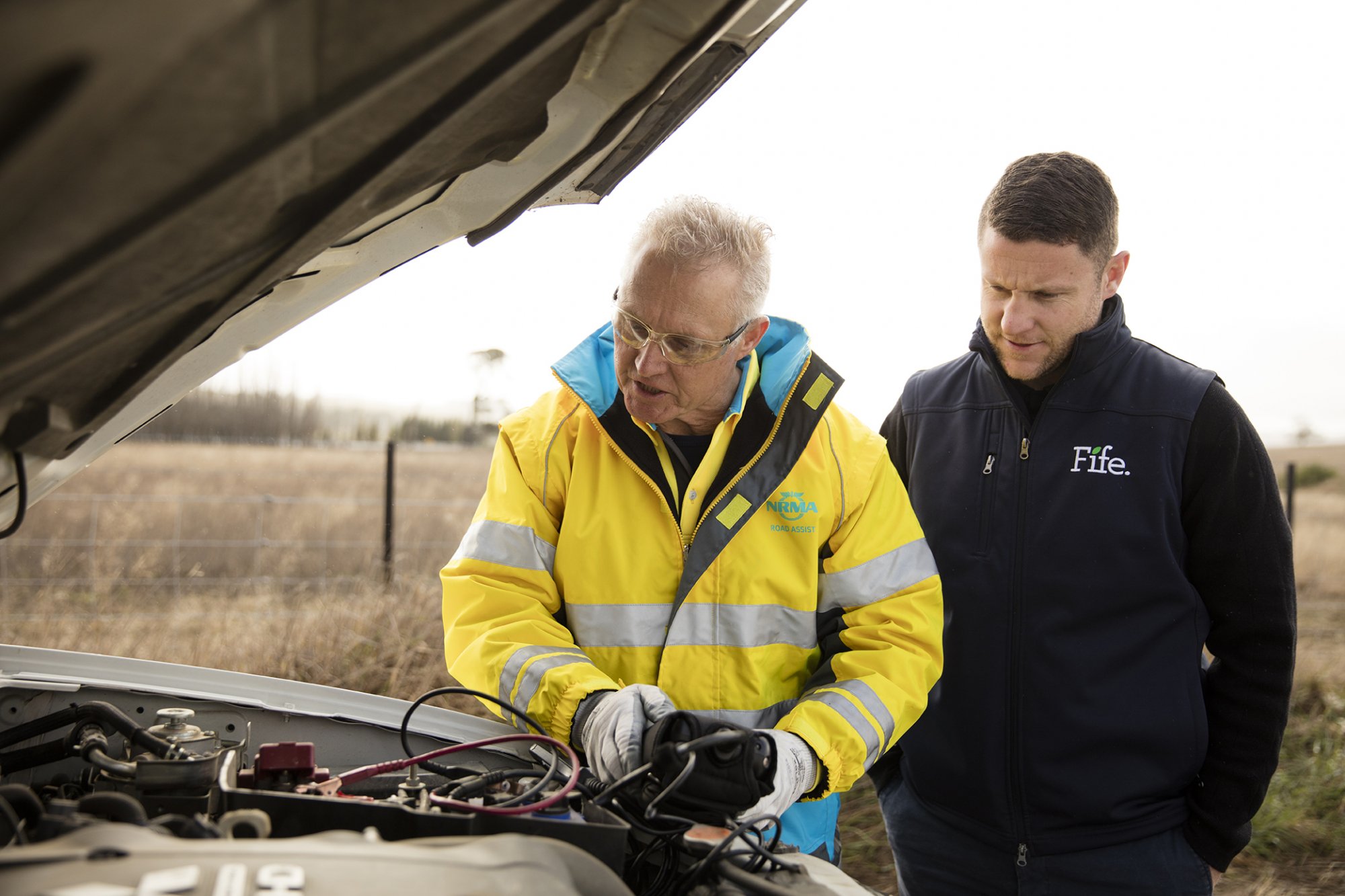
Canberra’s hot and cold weather extremes are wreaking havoc on car batteries with more than 12,400 Canberrans needing roadside assistance for flat or dead batteries in the last 12 months.
According to ACT statistics from the NRMA for the 2016-17 financial year, car battery problems were by far the biggest reason for call-outs from members in the past year – causing 25.9 per cent of call-outs in the ACT.
In second spot came call-outs for wheel and tyre problems, particularly flat tyres. A total of 4,789 people called on Canberra’s NRMA services for this reason – representing 10 per cent of call-outs.
Next came electrical problems which made up 7.2 per cent of call-outs (from 3,324 people), following by lockouts at 5.2 per cent (2,471 people) and cooling system problems at 4.4 per cent (2,109 people).
According to Canberra NRMA Service Centre patrolman Terry Smith, the main reason batteries are a big problem in Canberra is because the hot and cold extremes of our climate can cause movement within batteries.
“Big variations in temperature are quite hard on the batteries,” said Mr Smith who has worked locally with the NRMA for the past 10 years.
Reduced battery life for Canberra vehicles
“As a general rule of thumb, battery life is three to five years. However, in Canberra, you can expect at around three years a battery will be getting to the unreliable part of its life.”
Mr Smith said that you can tell a battery is coming to the end of its life if it’s leaking fluid or if you start to notice slow cranking, where the car sounds lethargic when it’s trying to turn over. However, in some instances, you may get no signs the battery is failing.
“If you think your battery is a bit suspect, you can drop into any NRMA Car Servicing Centre at any time for a free battery check, or give us a call and we’ll send out a patrolman to test the battery,” Mr Smith said.
He said this enables members to deal with a failing battery at a time that suits them, rather than when they are trying to get to work or to get children to school.
To try and lengthen battery life, Mr Smith recommends storing your car in a garage so it’s less exposed to the elements and also ensuring you lock the car when you’ve finished with it, as in later model cars this will cause the vehicle to power down more quickly.
Tyre and wheel problems

Mr Smith said the most common problem in Canberra in the ‘wheels and tyres’ category is flat tyres.
He stressed that safety should always be the top priority when you have a flat tyre and urged drivers to prioritise getting the vehicle off the road if there is a safe place to pull over.
“We see a lot of vehicles where the wheels have been over-tightened and the Member can’t get the wheels off, or their vehicle doesn’t have the right tools,” Mr Smith said.
“Occasionally you will see where the wheels have blown out from being worn and neglected. It’s a good idea to check your tyres periodically for pressure and tread depth.”
Mr Smith said the minimum tread depth should be 1.5 mm deep across the whole surface of the tyre.
“If it’s below that anywhere, it’s not roadworthy. Make sure you also have a roadworthy spare tyre, because if we go out and you don’t have one, we can’t make the vehicle unroadworthy by replacing it with a bad tyre.”
Electrical problems
In terms of call-outs for electrical problems, Mr Smith said that common issues involve starter motor failures and responding to warning lights, such as a ‘check engine’ light.
“In most cases, we can scan that vehicle and give them information to take to their repairer.”
Mr Smith said he often is called out to situations where cars are passing through Canberra to the snow and encounter issues associated with the sudden change in temperature. He urged people to always respond to warning lights.
Lockouts
When it comes to lockouts, Mr Smith said that the majority of call-outs are for general lockouts, although patrols do respond to lockouts involving children and pets from time to time.
“The best advice there is to not put keys inside the car – always keep them on your person – because with a lot of vehicles now, if you open the back door but not the front, the car will potentially relock itself,” he said.
“The other thing we’re seeing a lot with European models is people opening the boot, but people not realising it hasn’t unlocked the car and it deadlocks.”
Cooling system problems
Mr Smith said that cooling system problems are important to attend to as they can escalate quickly.
“One of the classic things we see is that an engine may start to overheat and it goes from a simple hose repair or radiator repair to an engine failure if it goes too far,” he said.
“If an oil light is on, that means pressure and it will fail an engine very rapidly.”
Mr Smith stressed that people should be proactive in responding to car problems rather than waiting until the car has broken down.
“A member does not have to be broken down to ring us. Don’t ignore problems – there is no such thing as a nonsense call as far as I’m concerned,” he said.
For more information from the NRMA about replacing flat car batteries please click here or for car servicing/repair information please click here.

Top and bottom photos: NRMA patrolmen assisting members experiencing car battery problems. Photos supplied by the NRMA.
Second photo: A badly punctured tyre taken from a Canberra car. Photo: Glynis Quinlan
Have you had experiences where you’ve needed assistance for things like a flat battery, punctured tyre or because you’ve locked your keys in the car? Tell us your story in the comments below.













